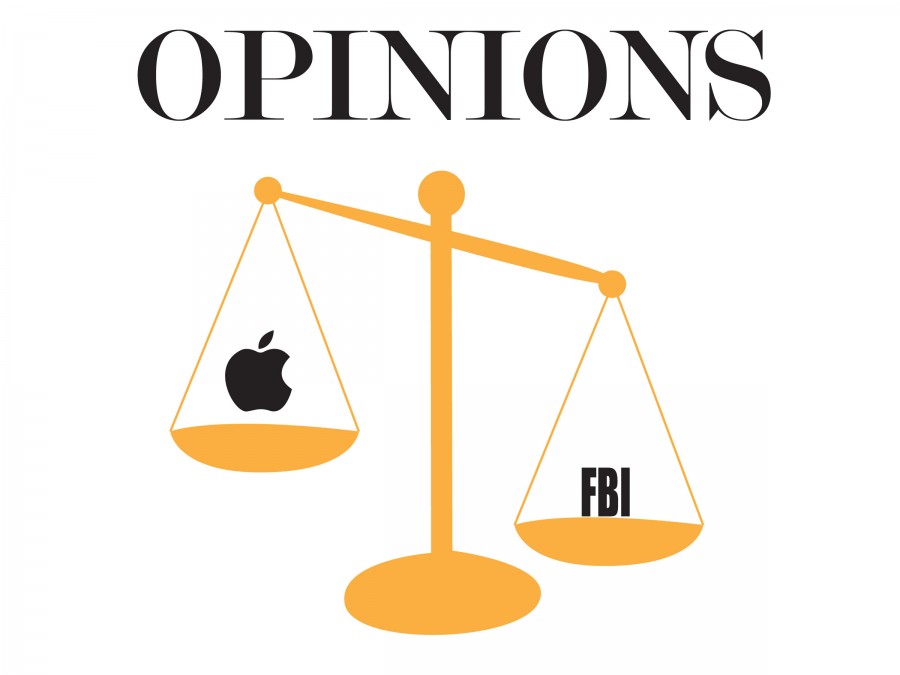Public Policy: Federally mandated hacking? There may be an app for that
March 10, 2016
Chances are you or somebody you know has an iPhone. A 2015 study concluded that there are 94 million iPhones in use in the United States. Regardless of whether you have an iPhone, Android, or flip-phone, the recent controversy surrounding leading technology company Apple and the Federal Bureau of Investigation (FBI) impacts smartphone users across the nation. American privacy rights are being called into question once again, long after Edward Snowden and surveillance program PRISM have faded from the news cycle. Will we as a nation ever be able to strike a balance between security and privacy?
The case that renewed this issue in the public eye was a tragic mass shooting, an increasingly common occurrence in our society. In December 2015, a woman named Tashfeen Malik and her husband Syed Rizwan Farook opened fire on a holiday party, killing at least 14 and injuring approximately 21 people at Inland Regional Center in San Bernardino, Calif. The shooters died in the ensuing shootout with the police.
As part of the following investigations, the FBI recovered the phones of Malik and Farook but was unable to access Farook’s iPhone 5c. The bureau had hoped to learn who the shooters had been in contact with before the attack, and what they did in the 18 minutes between the initial shooting and their deaths. This information, if proven valuable, could be used to thwart potential terrorist attacks in the future. After attempting to change the iCloud password in order to gain access to the data, investigators were locked out of the phone. As all iPhone users know, the cellular data is wiped from the phone following 10 incorrect entry attempts.
The FBI reached out to Apple for assistance, who refused to acquiesce to federal demands and claimed that it would need to write new software in order to create a backdoor in the encryption. The FBI then arranged a court order from a federal magistrate judge in an attempt to force the company to do so.
Apple CEO Tim Cook publicly released a statement decrying the government’s request and vowing that Apple would fight the order. While the FBI has specified that it only wants to decrypt Farook’s phone, Apple understandably doubts its claims. The company believes that any software it creates could be used to invade privacy on a much larger scale. Since the initial order, the U.S. Department of Justice has actually requested assistance in unlocking at least nine other phones involved in crimes such as drug trafficking and pornography. Apple executives fear that this would set a dangerous precedent in other countries where iPhones are widely used, especially in China where there has been pressure from the government for more control over encryption software. A 2015 report revealed that Apple had received over 11,000 requests from government agencies worldwide for unlocking assistance. If the FBI wins this case, Apple may be forced to comply.
Some people believe that privacy can be sacrificed in the name of national security, operating under the premise that if you have nothing to hide, you needn’t be concerned. Others believe that this type of thinking is a slippery slope, and before long, your personal information could be used against you. What do you think? Does Apple have the right to withhold access to this potentially important information? Can we trust our government, and the people operating within it, to use this enormous power for good?






















